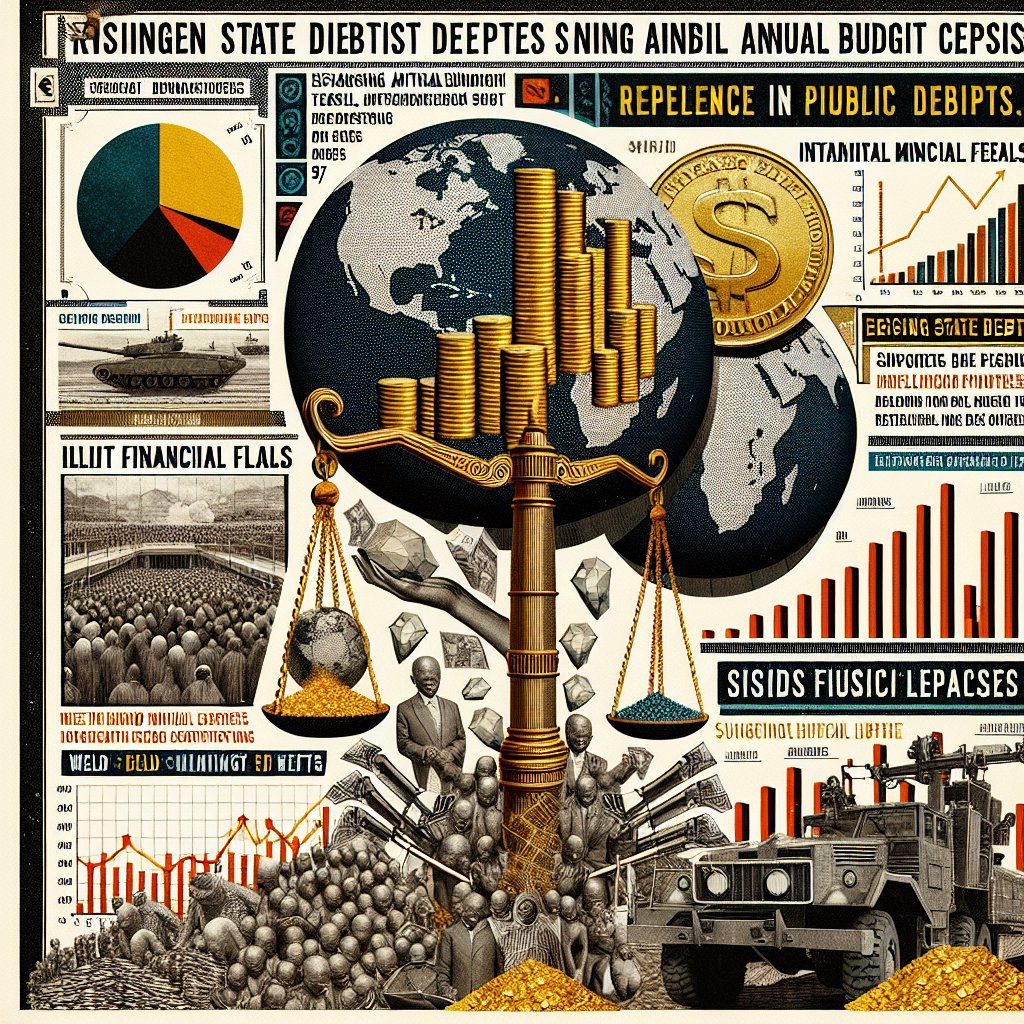Image created by AI
South Africa's State Finances and the Impact of Neo-liberal Policies
Amid falling commodity prices and surging state debt, South Africa's fiscal integrity hangs in the balance. The nation's annual budget deficit has expanded from 4% to 4.9% of GDP, signifying a worrying trend. Finance Minister Enoch Godongwana's choice to liquidate parts of the Gold and Foreign Exchange Contingency Reserve Account merely underscores the gravity of the situation, where public debt has skyrocketed past the 70% mark.
The origins of this financial implosion are traceable back to historical events such as the Covid-19 crisis, which necessitated substantial economic stimuli, and the systemic embezzlement of state funds within key parastatals, such as Eskom and Transnet. Egregious cases like the Hitachi-Eskom debacle of 2007, the Gupta family's infamous heist from 2013 to 2017, and the rampant economic crimes within corporate sectors are etched in the annals of history as black marks of corruption that contributed to this descent.
Aside from these illicit activities, South Africa has faced the scourge of Illicit Financial Flows (IFFs), with the Treasury's own watchdogs estimating an annual loss equating to 7% of the nation's GDP. In the face of increased scrutiny and regulatory demands, some acts of reform have emerged, yet the ideology of liberalization - as exhibited by Godongwana's easing of exchange controls - continues to dominate the economic landscape.
Godongwana's budget maneuvers – drawing from the SA Reserve Bank's funds to pacify debt – proves a contentious strategy. The Finance Minister overlooked alternative measures, such as challenging odious debts and tightening capital controls, which could have preserved South Africa's sovereign wealth.
The social ramifications of these financial decisions are stark. The forthcoming revision of the Social Relief of Distress (SRD) grant could leave millions in the lurch, underscoring a perception of disregard for the lower echelons of society in favor of corporate subsidies and regional military initiatives. Godongwana’s welfare policies betray a significant level of dissonance with the inflationary pressures on the average South African.
In stark contrast, the South African National Defence Force (SANDF) is set to benefit from copious funding, fulfilling what has been referred to as "sub-imperial" obligations in neighboring countries, safeguarding international mining ventures and fossil fuel extraction.
To break free from the shackles of neo-colonial exploitation, experts posit the need to reassess fiscal capabilities not solely based on income but considering wealth as a whole. Forecasts suggest a healthy sovereign 'net worth' if managed adequately, alleviating debt ratios and allowing for a more resilient, equity-focused financial administration.
The current financial crisis underlines the stark implications of neo-liberal policies in action. Only a conscientious management of public assets - coupled with sound national financial flows - holds the promise of a regenerated, more equitable state.










